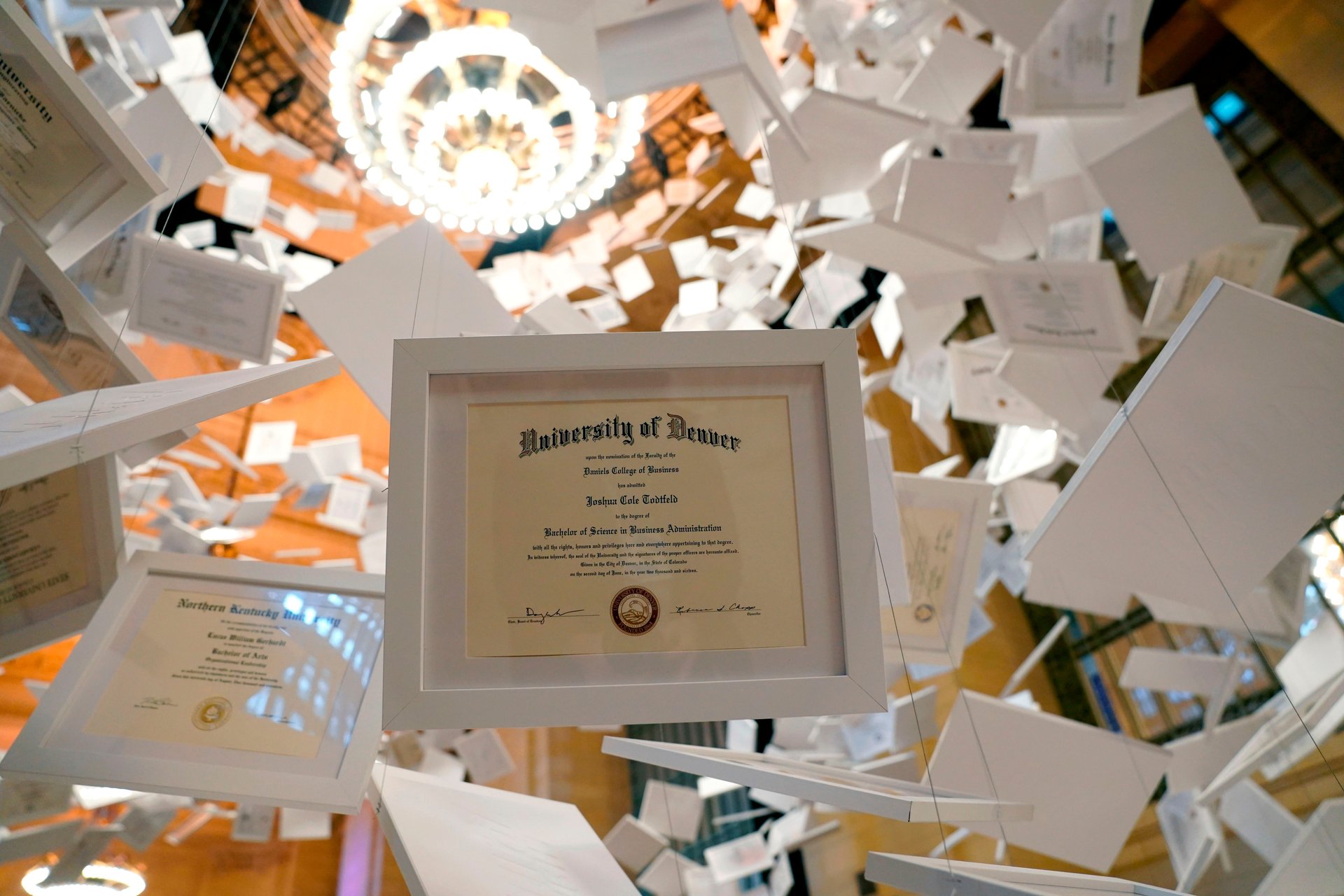🌎 Student debt (band-)aid
Plus: Tesla’s trendy stock split

Good morning, Quartz readers!
Here’s what you need to know
US president Joe Biden is forgiving $10,000 in student debt for most borrowers. It’s too much for conservatives and too little for progressives, but changes in income-based payments could have a big impact.
Long covid could be responsible for 15% of US labor shortages. More than 2 million Americans are thought to be unable to work because of the condition.
Social media platforms took down a campaign to promote US interests abroad. It’s the first time Meta and Twitter discovered and removed such an operation.
Peloton is riding on Amazon. The deal ends Peloton’s reliance on its website and stores for selling its at-home fitness equipment products.
The US National Labor Relations Board accused Starbucks of union-busting practices. A complaint alleged the coffee chain illegally withheld wages of unionized workers.
Amazon Care is shutting down. The decision to end the primary care and telehealth service follows Amazon’s acquisition of One Medical and rumored bid for Signify Health.
Peru is suing Repsol over the January oil spill. The Latin American country seeks $4.5 billion in damages from the Spanish oil company.
What to watch for
After the market closed yesterday, Tesla did one of the trendiest things in finance—it split its stock. Every share held in Tesla is now three shares, with each worth a third as much as the original.
In June, Amazon executed a 20-for-1 stock split and meme stock GameStop split 4-for-1 in July. Apple, Google, and Shopify have all been to Splitsville too, but this is Tesla’s second trip. The electric car manufacturer completed a 5-for-1 stock split just two years ago, in August 2020. So why do companies do this?
Stock splitting is more of a psychological marketing trick than a feat of financial engineering. But with many large publicly traded companies courting retail investors, it’s come back in style. And stock prices typically rise with increased retail buying in the weeks leading up to a split. So it’s not just a cosmetic change, is it?
China’s dictionary as economic indicator
In 2014, when the last edition of the Standard Dictionary of Contemporary Chinese was published, terms like “sharing economy” and “carbon neutral” hadn’t caught on, much less “influencer.” But the 2022 edition has a number of new entries that reflect key political socioeconomic trends in China, as well as the challenges that lie ahead.
📖 “New normal” [新常态]: According to Chinese state media, the Chinese version of the phrase and its eponymous theory were first coined by president Xi Jinping in 2014. Its inclusion in the dictionary is a reminder that Beijing is far from realizing its goal of rebalancing the economy.
📖 “Overtaking on the bend” [弯道超车]: Supercharging China’s technological capabilities to surpass those of major powers like the US is a staple of China’s many industrial policies. While China has “overtaken the bend” in EVs and batteries, not all of Beijing’s efforts have panned out.
Corporate purpose takes a step backward
A New York judge ruled against Ben & Jerry’s in an unusual case earlier this week. The ice cream maker had taken its parent company, Unilever, to court, arguing that selling its product in Occupied Palestinian Territories through a local distributor threatened Ben & Jerry’s overall mission.
The case highlights a question gaining prominence within modern capitalism: What is the purpose of companies?
✦ Love a deep dive? Member support helps keep Quartz stories like these free and accessible to all. Sign up today and take 40% off when you do!
Quartz’s most popular
💉 240 million Americans will likely be eligible for omicron-specific vaccine boosters after Labor Day
Surprising discoveries
Dugongs are functionally extinct in China. The gentle sea cow hasn’t been spotted in Chinese waters for several years.
The drought in Texas unveiled dinosaur tracks. Act fast, Instagrammers, they’ll be underwater again in a week.
Scientists are developing wind turbines using food-grade resin. They can be broken down and recycled into gummy bears.
A giant space umbrella will measure how much wood is left in forests. It will help us understand the role of trees in carbon capture.
Wild oysters truly are better in R-months. When the weather is colder, oysters are more mature, tastier, safer, and more sustainable.
Our best wishes for a productive day. Send any news, comments, hydrogen power and wandering dugongs to [email protected]. Reader support makes Quartz available to all—become a member. Today’s Daily Brief was brought to you by Annalisa Merelli, Mary Hui, Sofia Lotto Persio, and Susan Howson.